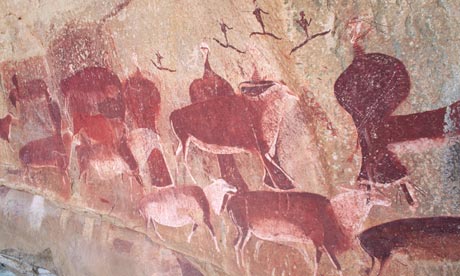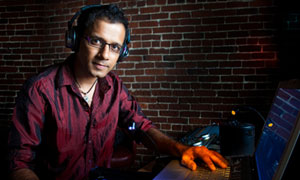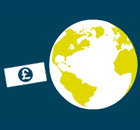The first inhabitants of southern Africa are taking the government of South Africa to court for "cultural genocide and discrimination". The Khoisan – comprising pastoral Khoikhoi and hunter-gatherer San, or Bushmen – claim they were dispossessed by colonialism and still lack recognition by the democratic government.
Now the Khoi and Boesman national assembly has lodged a case against the South African government at the country's equality court. Zenzile Khoisan, a spokesman for the national assembly, said they would seek a "proper and sustainable constitutional accommodation" and "a recognition of the damage caused by colonialism, apartheid and the current government for the continued assault on our rights to cultural identity".
On Saturday a group of Khoisan marched on the parliament building in Cape Town to demand their rights as the indigenous people of South Africa.
They called for the Company's Garden, South Africa's oldest public garden which is popular with tourists, to be renamed the Khoi Boesman [Bushman] Gogosoa Gardens in honour of one of its chiefs. The Khoisan have lived at the southern tip of Africa for thousands of years. They lost their water and land when Dutch settlers arrived in what is now Cape Town.
Members of the Khoisan argue they have been overlooked by land restitution policies which tend to focus on the more recent injustices of racial apartheid.
Zenzile Khoisan said: "In South Africa at the present time we are not recognised as a people. There are 11 official languages and none of them is ours."
The group has issued a memo for President Jacob Zuma with a list of eight demands including full recognition of its traditional leaders.
The memo also calls for "full linguistic recognition of all our indigenous Khoi and Boesman languages and the capacity to develop and proliferate these among our people" and "a full review of all land-rights claims submitted by our people and the proper and sustainable implementation of all agreements relating to settled claims".
There are further demands for "recognition of all our indigenous knowledge systems and the protection of all our intellectual property including medicinal remedies derived from plants such as hoodia" – an attempt to ensure the Khoisan benefit from commercial exploitation of their traditions.
It adds: "We demand the full and official recognition of the Khoi and Boesman national assembly as our organ of self-determination … We demand recognition and control of our heritage."
The Khoisan emergency action committee argues that the 1913 natives land act, which enforced territorial segregation between black and white people, is an inadequate starting point for land claimants because it ignores their earlier dispossession.
Zenzile Khoisan added: "In 1913 most of our land had already been usurped by various entities including the colonial authorities. Under the land restitution act it is impossible for us to claim because we were the first in opposition of colonialism."
The group also protests against being described as "coloured", a persistent term in South Africa that refers to mixed-race people, often Afrikaans-speakers in the Western Cape and Northern Cape provinces. Zenzile Khoisan estimates that around 80% of the 4 million-strong "coloured" population have a link to the Khoisan.
Land claims are nothing new in South Africa and the full implications of a successful Khoisan claim remain uncertain.
ProfBen Smith, director of the Rock Art Research Institute at Wits University, said: "We have a big restitution process and the Khoisan have to take their place with everyone else.
"Not all the land is going to be given back because it's not practical."






















